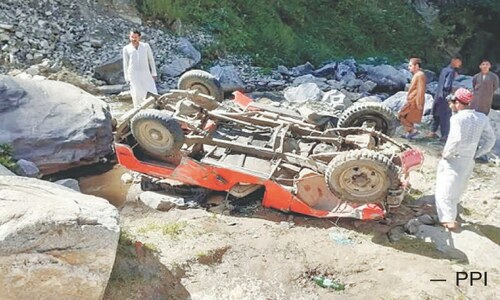KOHAT: Thousands of acres of agricultural land have been used up by housing societies since the influx of Afghans in 1981, leaving little to grow vegetables and grains.
President of property dealers’ association, Kamran Shah, told Dawn on contact that there were only two dozen housing societies in 2000, but now their number had increased to 160 registered, and still many unregistered.
He said rapid growth of housing societies had eaten up agricultural land used for growing vegetables, wheat, maize, and fruit on Rawalpindi, Bannu, and Hangu roads.
He said about 32,000 kanals of fertile land in Jarma on Bannu Road had been occupied by the internally displaced people from Orakzai, Kurram, Darra Adamkhel, Waziristan, Swat and Bajaur.
President of Kohat Chamber of Commerce and Industry Haji Rasheed Paracha expressed concern over investment of ‘drug money’ in housing societies.
He deplored that despite merger of former tribal areas with Khyber Pakhtunkhwa, tribesmen were still growing hemp and opium in their own areas and invested the proceeds from sale of drugs to buy land and shops in Kohat.
He claimed that the Afghans were free to buy land in Kohat. He called for imposing ban on land purchase by Afghans.
He said Dhodha area, which previously fulfilled the requirements of vegetables of the city residents, was turned into a residential area after the construction of a cadet college there. Similarly, he said Mir Ahmedkhel area, which was famous for growing cabbage, carrots, guava and wheat, had been turned into a housing society.
He said cost of land in Kohat had increased from a few thousands rupees per marla to more than a million.
Published in Dawn, December 25th, 2022












































